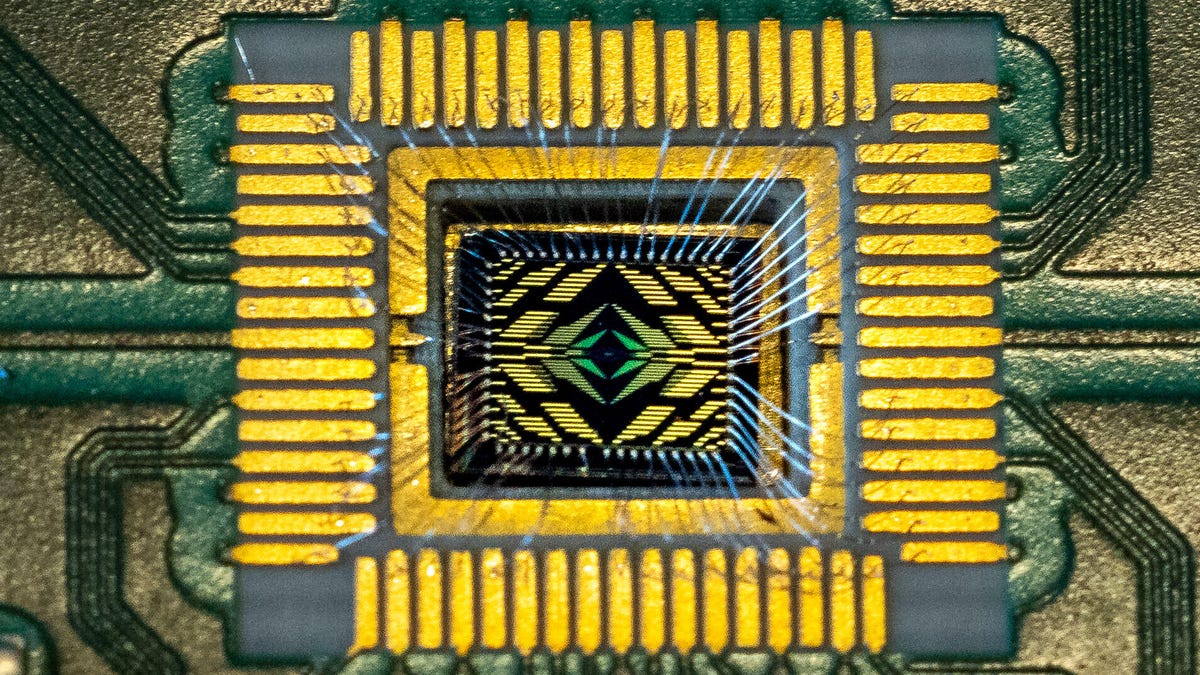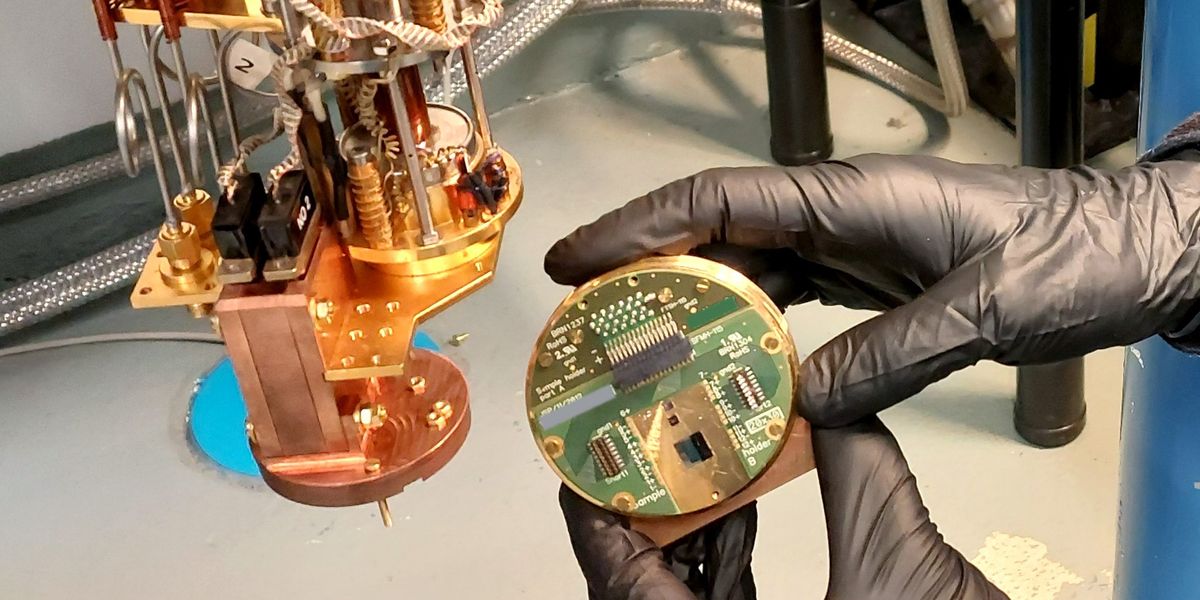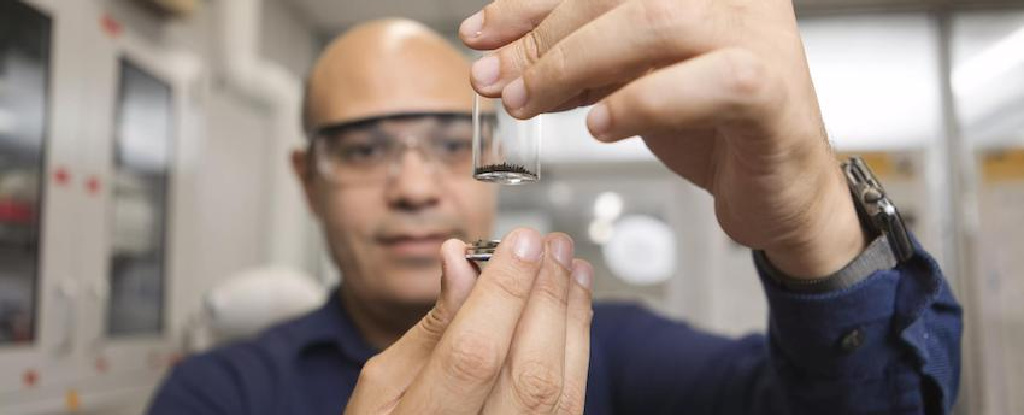- Bell State
- Posts
- Intel's Quantum Strategy, Room Temperature Magnetic Materials, and new Job Opportunities
Intel's Quantum Strategy, Room Temperature Magnetic Materials, and new Job Opportunities
Quantum Intelligence 🤖
Welcome to The Bell State.

Your weekly roundup of the biggest breakthroughs in Quantum Computing.
Atlantic Quantum Outperforms IBM and Google with Innovative Quantum Architecture
Atlantic Quantum, a startup born out of MIT research, has unveiled research showcasing superior error reduction capabilities of its quantum computer architecture compared to industry standards employed by giants like IBM and Google.
Atlantic Quantum, backed by $9 million in seed funding, aims to surmount the hardware challenges hindering quantum computing's progress. The startup has allegedly achieved 99.9% accuracy for a two-qubit circuit. This innovation could present the first major alternative to the standard circuits used since 2007. Lower error rates simplify quantum computers, reducing the need for numerous circuits.
Atlantic Quantum also recently secured a $1.25 million contract with the Air Force Research Laboratory to develop quantum processors for national defense. The startup has also established an R&D facility in Cambridge, Massachusetts, and a subsidiary in Sweden for chip fabrication. CEO Kannan asserts that Atlantic Quantum's control over key patents makes it challenging for tech giants like IBM and Google to catch up, given the simplicity of their qubit control method compared to industry standards.
Signal creates E2E Post-Quantum Encryption Protocol
Signal foundation developed PQXDH (Post Quantum Extended Diffie Helmen) an encryption algorithm that is hardened against quantum computer cracking. Enthusiasts believe this protocol will make it's way into more messaging apps like WhatsApp, Messenger, and Skype.
Intel’s Quantum Strategy Aims to Surpass Rivals
Intel is adopting a unique approach in the quantum computing race, focusing on the quality and scalability of qubits rather than sheer quantity. While it currently lags behind rivals with its 12-qubit Tunnel Falls quantum processor, Intel aims to excel by leveraging its manufacturing expertise and using silicon qubits that align with its existing technology. The goal is to improve qubit quality, reliability, and connectivity within processors, ultimately scaling to millions of error-correcting qubits to achieve effective quantum computing workloads. While the outcome remains uncertain, industry experts see promise in Intel's approach, which could potentially revolutionize computing in the coming years.
South Korea's First Quantum-Classical Hybrid Computing Infrastructure
Xanadu (a quantum company) has joined forces with the Korea Institute of Science and Technology Information (KISTI) to create a quantum-classical hybrid computing infrastructure in South Korea. This partnership aims to empower South Korean researchers by developing a quantum-classical hybrid circuit software development kit (SDK) that connects various classical and quantum hardware platforms through KISTI's cloud service. Xanadu's open-source software library, PennyLane, and its quantum simulator, Lightning, will serve as foundational tools for this project, facilitating state-of-the-art research in the region and advancing quantum computing capabilities.
Electronic Cooling Could Miniaturize Quantum Computer Refrigeration
Researchers in Finland are developing electronic refrigeration methods that could significantly reduce the size and power consumption of cooling systems used in quantum computers. Unlike traditional quantum computers that rely on large and complex dilution refrigerators to cool qubits to near absolute zero, the new coolers are thermionic devices that use electronic methods of refrigeration. These thermionic coolers control phonon flow, making them thermal insulators and preventing heat from radiating back into the cooling system. The researchers believe this technology could not only benefit quantum computing but also find applications in space missions and cryo-enabled sensing and communication technologies.
Physicists Develop Room-Temperature Magnetic Material for Quantum Computing
Physicists at the University of Texas, El Paso, have made a significant breakthrough by creating a highly magnetic quantum computing material that maintains its magnetism at room temperature without the need for rare earth minerals. This material, produced through a sequential synthesis method, holds the potential for stable qubits, advancing the quest for practical quantum computing. Further testing will be needed, but this development offers promising prospects for quantum computing and data storage applications.







